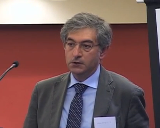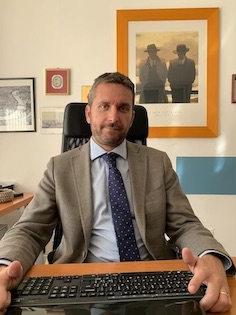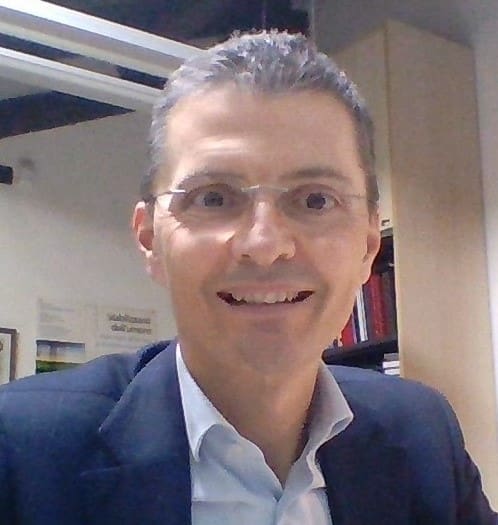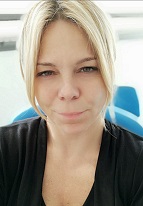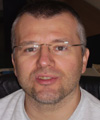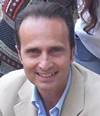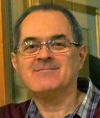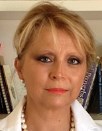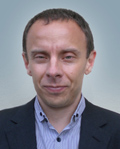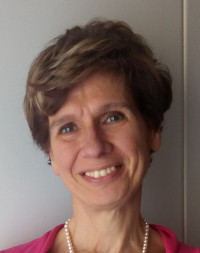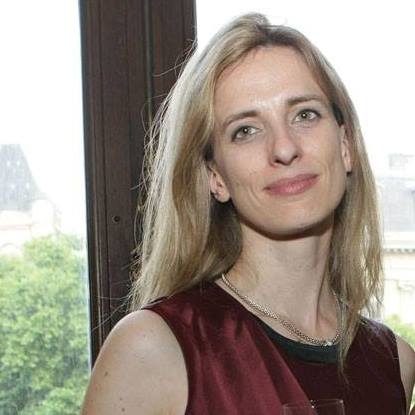Studying at the University of Verona
Here you can find information on the organisational aspects of the Programme, lecture timetables, learning activities and useful contact details for your time at the University, from enrolment to graduation.
Academic calendar
The academic calendar shows the deadlines and scheduled events that are relevant to students, teaching and technical-administrative staff of the University. Public holidays and University closures are also indicated. The academic year normally begins on 1 October each year and ends on 30 September of the following year.
Course calendar
The Academic Calendar sets out the degree programme lecture and exam timetables, as well as the relevant university closure dates..
| Period | From | To |
|---|---|---|
| 1° e 2° semestre (corsi annuali) PROFESSIONI SANITARIE | Oct 1, 2021 | Sep 30, 2022 |
| 1 SEMESTRE PROFESSIONI SANITARIE | Oct 1, 2021 | Dec 23, 2021 |
| 2 SEMESTRE PROFESSIONI SANITARIE | Jan 10, 2022 | Sep 30, 2022 |
| Session | From | To |
|---|---|---|
| TERP SESSIONE INVERNALE 2 ANNO | Dec 13, 2021 | Jan 28, 2022 |
| TERP SESSIONE INVERNALE 1-3 ANNO | Jan 10, 2022 | Feb 4, 2022 |
| TERP SESSIONE ESTIVA 2 ANNO | May 23, 2022 | Jun 24, 2022 |
| TERP SESSIONE ESTIVA 1-3 ANNO | Jul 4, 2022 | Jul 29, 2022 |
| TERP SESSIONE AUTUNNALE | Sep 1, 2022 | Sep 30, 2022 |
| Session | From | To |
|---|---|---|
| TERP SESSIONE AUTUNNALE | Nov 1, 2022 | Dec 23, 2022 |
| TERP SESSIONE PRIMAVERILE | Mar 1, 2023 | Apr 30, 2023 |
| Period | From | To |
|---|---|---|
| Festa di Tutti i Santi | Nov 1, 2021 | Nov 1, 2021 |
| Festa dell'Immacolata Concezione | Dec 8, 2021 | Dec 8, 2021 |
| Festività natalizie | Dec 24, 2021 | Jan 2, 2022 |
| Festività pasquali | Apr 15, 2022 | Apr 19, 2022 |
| Festa della Liberazione | Apr 25, 2022 | Apr 25, 2022 |
| FESTA DEL LAVORO | May 1, 2022 | May 1, 2022 |
| Festa della Repubblica | Jun 2, 2022 | Jun 2, 2022 |
| Santo Patrono - Rovereto | Aug 5, 2022 | Aug 5, 2022 |
| Chiusura estiva | Aug 15, 2022 | Aug 20, 2022 |
| Description | Period | From | To |
|---|---|---|---|
| TIR TERP 3 ANNO 1 SEM 1 PERIODO | TIR TERP 3 ANNO 1 SEM 1 PERIODO | Nov 15, 2021 | Dec 22, 2021 |
| TIR TERP 2 ANNO 1 SEM | TIR TERP 2 ANNO 1 SEM | Jan 31, 2022 | Mar 11, 2022 |
| TIR TERP 1 ANNO 2 SEMESTRE 1 PERIODO | TIR TERP 1 ANNO 2 SEMESTRE 1 PERIODO | Mar 14, 2022 | Apr 8, 2022 |
| TIR TERP 3 ANNO 1 SEM 2 PERIODO | TIR TERP 3 ANNO 1 SEM 2 PERIODO | Mar 21, 2022 | May 3, 2022 |
| TIR TERP 3 ANNO 2 SEM | TIR TERP 3 ANNO 2 SEM | May 16, 2022 | Jun 24, 2022 |
| TIR TERP 1 ANNO 2 SEMESTRE 2 PERIODO | TIR TERP 1 ANNO 2 SEMESTRE 2 PERIODO | May 26, 2022 | Jun 24, 2022 |
| TIR TERP 2 ANNO 2 SEM 1 PERIODO | TIR TERP 2 ANNO 2 SEM 1 PERIODO | Jun 27, 2022 | Jul 29, 2022 |
| TIR TERP 2 ANNO 2 SEM 2 PERIODO | TIR TERP 2 ANNO 2 SEM 2 PERIODO | Aug 29, 2022 | Sep 28, 2022 |
Exam calendar
Exam dates and rounds are managed by the relevant Medicine Teaching and Student Services Unit.
To view all the exam sessions available, please use the Exam dashboard on ESSE3.
If you forgot your login details or have problems logging in, please contact the relevant IT HelpDesk, or check the login details recovery web page.
Should you have any doubts or questions, please check the Enrollment FAQs
Academic staff
 0464403434
0464403434
 borghesi.a@mail.apss.tn.it
borghesi.a@mail.apss.tn.it
 silvia.chiesa@apss.tn.it
silvia.chiesa@apss.tn.it
 drgasp@tin.it
drgasp@tin.it
 enrica.latterini@apss.tn.it
enrica.latterini@apss.tn.it
 renata.lazzeri@apss.tn.it
renata.lazzeri@apss.tn.it
 alessandra.mamo@univr.it
alessandra.mamo@univr.it
 rocco.micciolo@economia.unitn.it
rocco.micciolo@economia.unitn.it
 loredana.pancheri@univr.it
loredana.pancheri@univr.it
Study Plan
The Study Plan includes all modules, teaching and learning activities that each student will need to undertake during their time at the University.
Please select your Study Plan based on your enrollment year.
1° Year
| Modules | Credits | TAF | SSD |
|---|
2° Year activated in the A.Y. 2022/2023
| Modules | Credits | TAF | SSD |
|---|
3° Year activated in the A.Y. 2023/2024
| Modules | Credits | TAF | SSD |
|---|
| Modules | Credits | TAF | SSD |
|---|
| Modules | Credits | TAF | SSD |
|---|
| Modules | Credits | TAF | SSD |
|---|
Legend | Type of training activity (TTA)
TAF (Type of Educational Activity) All courses and activities are classified into different types of educational activities, indicated by a letter.
Methods and techniques of rehabilitation intervention (2022/2023)
The teaching is organized as follows:
Learning objectives
The teaching provides students with useful tools for the management of the rehabilitation intervention with particular reference to the residential, semi-residential and early treatments in psychosis through the knowledge of the theoretical foundations of community psychiatry and recovery oriented intervention techniques" "" "". MODULE METHODS AND TECHNIQUES OF COMMUNITY INTERVENTION Formative objectives: Provide notions, concepts and tools useful for understanding community psychiatry, the theoretical foundations that constitute its basis and the practical-rehabilitative interventions provided for and applied by the Departments of Mental Health which it is inspired. MODULE METHODS AND TECHNIQUES OF EARLY REHABILITATION INTERVENTION Formative objectives: To analyze the concept of prevention and promotion of Menale Health. Provide the student with tools to learn about the constituent elements of early treatments in psychosis and the main intervention models. MODULE METHODS AND REHABILITATION TECHNIQUES IN RESIDENTIAL AND SEMI-DIFFERENTIAL CONTEXTS Training objectives: - know the normative references of mental health services - learn about the various organizational and functional levels of the DSM - acquire tools and intervention techniques in residential and semi-residential settings - learn about the main programs evidence based and recovery orientedThe teaching provides students with useful tools for the management of the rehabilitation intervention with particular reference to the residential, semi-residential and early treatments in psychosis through the knowledge of the theoretical foundations of community psychiatry and recovery oriented intervention techniques" "" "". MODULE METHODS AND TECHNIQUES OF COMMUNITY INTERVENTION Formative objectives: Provide notions, concepts and tools useful for understanding community psychiatry, the theoretical foundations that constitute its basis and the practical-rehabilitative interventions provided for and applied by the Departments of Mental Health which it is inspired. MODULE METHODS AND TECHNIQUES OF EARLY REHABILITATION INTERVENTION Formative objectives: To analyze the concept of prevention and promotion of Menale Health. Provide the student with tools to learn about the constituent elements of early treatments in psychosis and the main intervention models. MODULE METHODS AND REHABILITATION TECHNIQUES IN RESIDENTIAL AND SEMI-DIFFERENTIAL CONTEXTS Training objectives: - know the normative references of mental health services - learn about the various organizational and functional levels of the DSM - acquire tools and intervention techniques in residential and semi-residential settings - learn about the main programs evidence based and recovery oriented
Prerequisites and basic notions
Possess the knowledge related to the teachings of clinic and rehabilitation techniques of the first year and first semester of the second year
Bibliography
Criteria for the composition of the final grade
The final grade is out of thirty. The exam is oral and integrated with the other two modules. The exam includes open questions concerning a clinical-rehabilitative situation.
Career prospects
Module/Programme news
News for students
There you will find information, resources and services useful during your time at the University (Student’s exam record, your study plan on ESSE3, Distance Learning courses, university email account, office forms, administrative procedures, etc.). You can log into MyUnivr with your GIA login details: only in this way will you be able to receive notification of all the notices from your teachers and your secretariat via email and also via the Univr app.
Orario lezioni
Documents
| Title | Info File |
|---|---|
|
|
pdf, it, 57 KB, 08/07/24 |
|
|
pdf, it, 1453 KB, 15/02/24 |
Gestione carriere
Appelli d'esame
AVVISO IMPORTANTE
Documents
| Title | Info File |
|---|---|
|
|
pdf, it, 313 KB, 02/10/23 |
Student login and resources
Attività Seminariali/a scelta dello studente
Attività Seminariali/a scelta dello studente
Tirocinio professionalizzante
Documents
| Title | Info File |
|---|---|
|
|
pdf, it, 146 KB, 15/02/24 |
